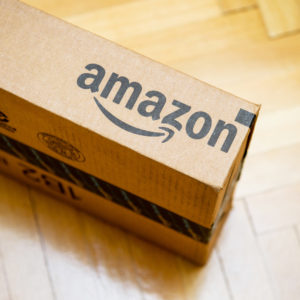The chief executives from the four largest tech companies are soon to settle into the hot seat for a landmark hearing before the House Judiciary Committee, providing at long last a chance to get answers on just how these companies have been able to obtain such extraordinary market power.
Yet as the committee prepares for this hearing, new questions have emerged that underscored the need for the committee to address in order to ensure fair competition for one digital platform in particular: Amazon.
Third-party sellers now make up more than half of all Amazon gross merchandise sales, a dramatic transformation that demonstrates the important role these sellers have played in powering the company’s explosive growth.
And Amazon has significant incentives to continue growing its third-party marketplace: According to e-commerce experts, for every dollar that shoppers spend on products from third-party merchants as much as 50 cents goes back to Amazon.
At the same time, Amazon also boasts hundreds of private label brands across nearly all product categories, giving the company tremendous opportunity to experiment and gain a competitive advantage. In fact, in the past two years alone, the number of best-selling AmazonBasics has more than doubled.
Amazon executives have long maintained — even under sworn testimony — that the company keeps a barrier between third-party sellers and its own products and does not use data from these sellers to benefit its product strategy.
Yet recent revelations drew these claims into question, after a Wall Street Journal investigation exposed that “employees often consulted sales information on third-party vendors when developing private-label merchandise.”
Even despite all of these concerns over how Amazon treats smaller competitors, just this month the federal government still gave Amazon a plum contract — which House members must zero-in on during the coming hearing before Amazon is handed the keys to the kingdom.
When the Government Services Administration announced that it was seeking companies to help it build an online marketplace to easily buy small purchases like office supplies and furniture, third-party sellers — that have been burned by the company — began sounding the alarm.
These sellers warned throughout the solicitation process about how allowing bidders with a private label business to build the platform would leave open the possibility of government vendors having their data exploited, warning that handing companies like Amazon the contract could further stifle competition across the market for public sector purchasing.
But despite these protests, Amazon still became one of just three companies given the contract, affording the company control over the future of the government’s online marketplace for years to come.
We’ve seen for years how Amazon treats its third-party sellers, and there’s no reason to believe that allowing them to dominate government purchasing will not result in small businesses that have long relied on these purchases as a lifeline will end up being gutted.
Unfortunately, Amazon’s massive market power and the control it wields over its marketplace leaves sellers understandably reluctant to come forward and directly address these issues.
In their place, the committee must demand that Amazon and founder/CEO Jeff Bezos provide answers to whether the company is gaining a competitive advantage in the digital marketplace at their expense.
The committee has a tremendous opportunity to address both the longstanding and newly emerging questions around how we govern e-commerce platforms in the modern economy.
Sellers now are depending on the committee more than ever to demand truthful answers.

